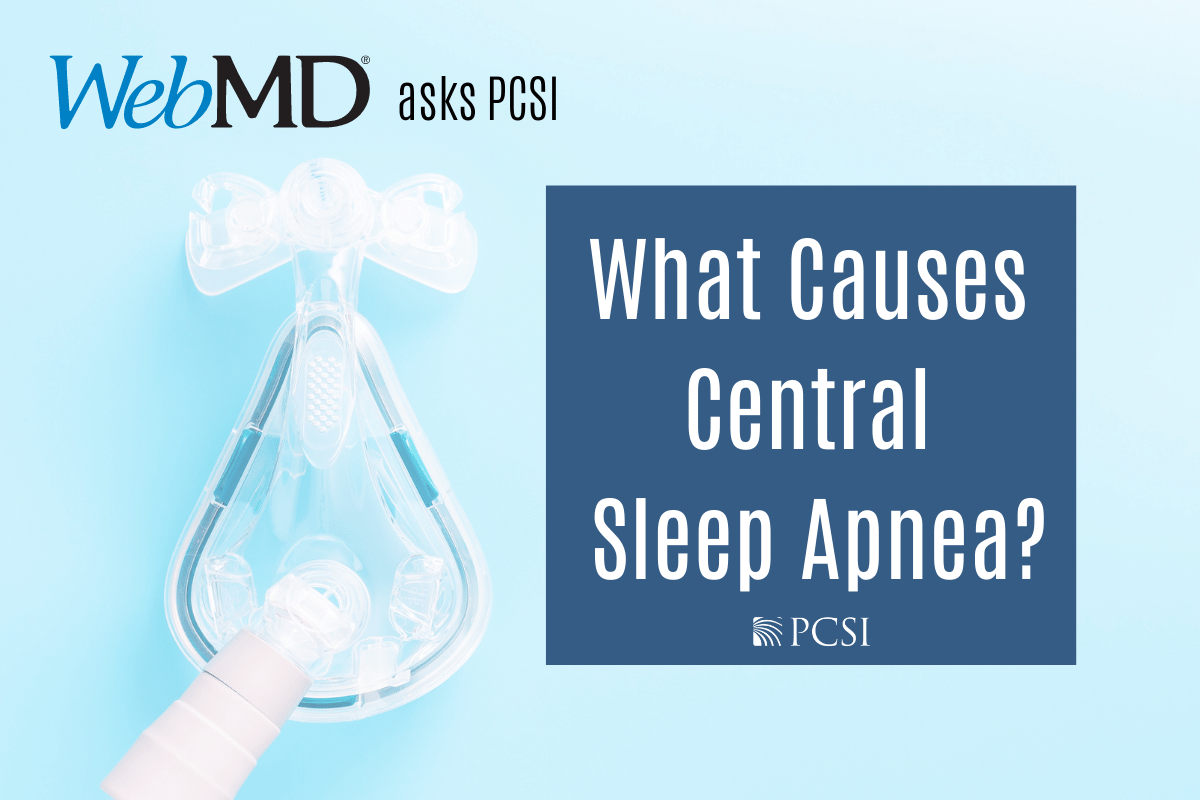
08 Jul WebMD asks PCSI what causes central sleep apnea?
Central sleep apnea occurs when there’s a problem with the brain signals that communicate with the muscles involved in breathing. According to Mayo Clinic, the condition can cause abnormal pauses in breathing during sleep, abrupt rousings from sleep, as well as shortness of breath and nighttime chest pain. It can also impact your waking life with mood changes, difficulty concentrating, and a decreased ability to complete your exercise routine. Read on for more about what causes this disorder.
Central Sleep Apnea Causes
“The three major causes in the U.S. of central sleep apnea are heart failure, strokes, or medication,” Steven A. Thau, MD, Pulmonary Disease, Critical Care Medicine, and Sleep Medicine Specialist, tells WebMD Connect to Care.
Obstructive sleep apnea often presents as snoring, but central sleep apnea’s signs and symptoms may be harder to detect. You may wake up feeling unrefreshed or tired, or you may detect a slightly irregular breathing pattern when you’re awake.
“Some people with central sleep apnea are unaware and don’t have any symptoms because if they have multiple medical issues, like cardiac issues, they might blame it on medication, frailty, shortness of breath, anything other than central sleep apnea. The key differential here is patients with central sleep apnea do not snore,” Thau says.
Some people may experience a combination of symptoms, and it’s also possible to experience both obstructive sleep apnea and central sleep apnea at once.
Certain serious heart conditions, including atrial fibrillation and congestive heart failure, increase the risk of developing central sleep apnea. Other risk factors include opioid use, being over age 65, and brain tumors or structural brainstem lesions.
“If you suspect that you’re suffering from central sleep apnea, there’s a number of different conditions that could be causing the symptoms. Sleep evaluation can be done either at home or in the lab,” Luis Peña-Hernández, MD, a pulmonologist, tells WebMD Connect to Care.
According to Mayo Clinic, continuous positive air pressure (CPAP) therapy is usually the first line of defense in central sleep apnea treatment.
“CPAP machines are used to keep the airway open in order to facilitate the airflow and maximize the use of the respiratory effort made by the muscles of breathing. It’s the mainstay of therapy for obstructive sleep apnea but has also shown to be beneficial for patients with central apnea by facilitating the airflow on a patent airway,” Peña-Hernández says.
Think you may have sleep apnea? You can start your journey to more restful sleep TODAY.
Untreated sleep disorders can negatively affect your physical and emotional health. Sleep testing can help you get the answers you need to receive the treatment you deserve. WebMD Connect to Care Advisors are standing by to help.


Sorry, the comment form is closed at this time.